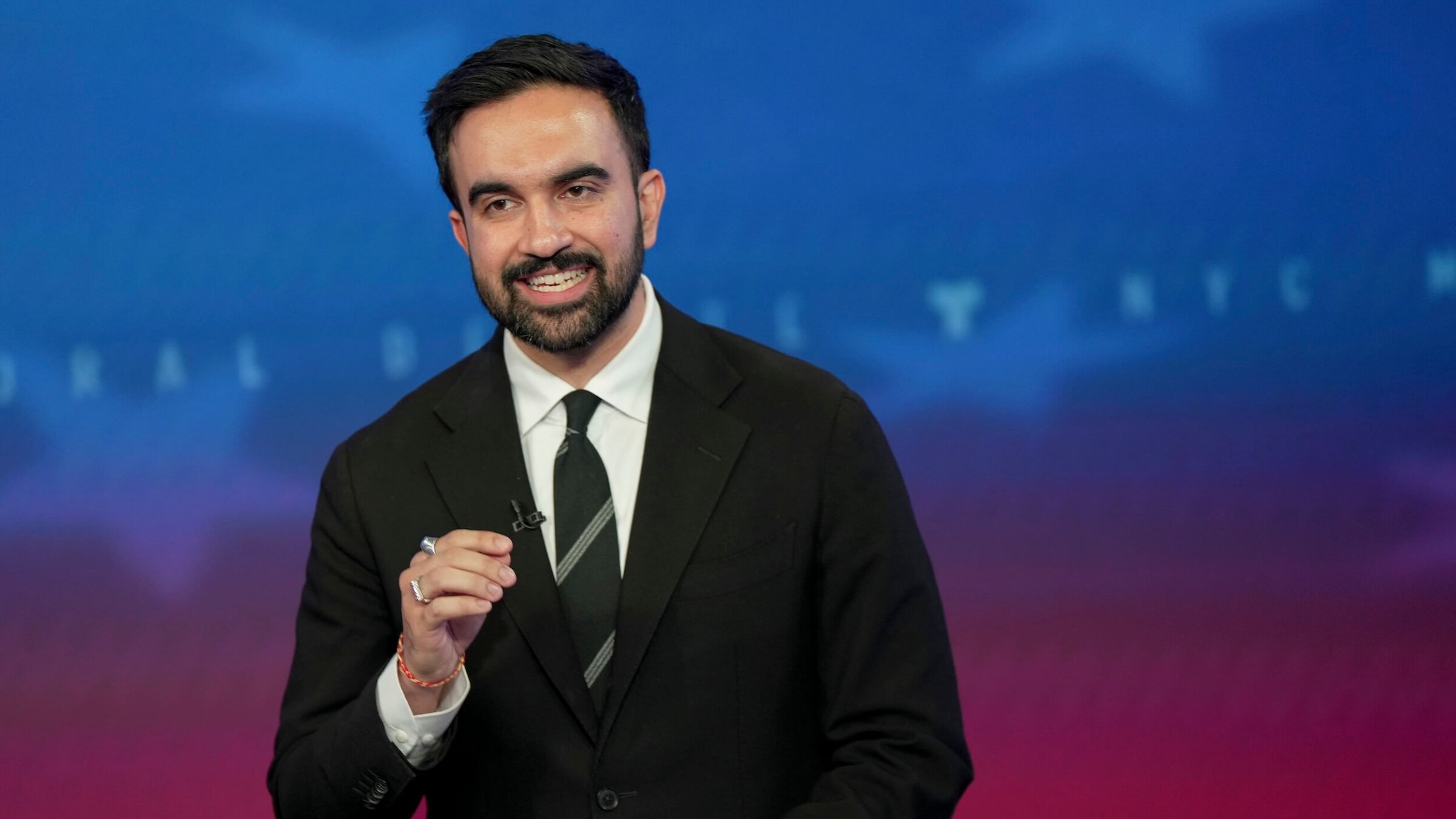Why some Satmar Hasidic leaders endorsed Zohran Mamdani as mayor, stunning many Jewish voters
Mamdani has forged new relationships across a fractured Jewish electorate, despite skepticism over his record on Israel and antisemitism

Democratic mayoral nominee Zohran Mamdani on Oct. 16. Photo by Angelina Katsanis-Pool/Getty Images
A surprise endorsement of Zohran Mamdani by a faction of the Satmar Hasidic community has set off a firestorm within the community, exposing sharp internal divisions about the Democratic nominee struggling to earn the trust of many Jews in the race for New York City mayor.
On Sunday, Rabbi Moshe Indig, a political leader of the sect led by Rabbi Aaron Teitelbaum from Kiryas Joel and known as the Ahronim, publicly declared his support for Mamdani at a meeting he organized in Williamsburg.
But within hours, three prominent leaders of the Ahronim sect issued a joint statement rejecting the move and announcing their own endorsement of former Gov. Andrew Cuomo, who was the community’s preferred candidate during the Democratic primary.
Indig, a leading political figure in the Ahronim camp who had praised Mamdani earlier in the campaign as “very nice, very humble” and “not antisemitic,” has not commented publicly since the backlash unfolded.
Why it matters
For Mamdani, who has sought to defuse criticism of his anti-Israel statements through quiet outreach to Haredi leaders, the turmoil reflects both his progress and the limits of his effort.
The approximately 80,000 voters in Brooklyn’s Haredi communities, where rabbinic dictates about ballot choices lead to a reliable bloc of support, are particularly sought after by candidates. The Satmar community is known for its staunchly anti-Zionist religious ideology.
If Mamdani, a democratic socialist and strident critic of Israel who leads by double digits according to recent polls, wins Tuesday’s election, it would mark the third consecutive mayoral race in which Ahronim’s political arm has demonstrated its political influence by backing the eventual winner, while other Hasidic blocs supported rival candidates.

In 2021, they endorsed Eric Adams over Andrew Yang, who was favored by most leading Hasidic sects. And in 2013, they backed Bill de Blasio, who narrowly avoided a runoff in the Democratic primary by just 5,000 votes, while the Zalonim and other groups supported Bill Thompson, then seen as the frontrunner.
The move to endorse Mamdani came days after Satmar, including the larger sect led by Rabbi Zalmen Teitelbaum from Williamsburg and known as the Zalonim, declared that they would not endorse any candidate for mayor while also condemning the “fear campaign” and attacks on Mamdani. They also met with Cuomo on Wednesday night, accompanied by Mayor Eric Adams, but ultimately declined to back him.
In an open letter to their followers published on Wednesday, the Satmar leadership highlighted Mamdani’s gestures that specifically addressed their concerns. They noted that the Democratic nominee has said he would work to protect Hasidic yeshivas that face scrutiny for failing to meet state education standards and promised that Hasidic families would benefit from his proposals to expand affordable housing and establish universal childcare.
If Mamdani wins, he would become the first Muslim mayor of New York City, home to the largest concentration of Jews in the U.S.
Cuomo still enjoys broad support among Jewish voters, who make up an estimated 10% of the general election electorate. A recent Quinnipiac poll of 170 Jewish voters showed Cuomo with 60% of their support and Mamdani with 16%, while a separate Marist poll of 792 likely voters — including an 11% sample of Jewish voters — found Cuomo with 55% and Mamdani at 32% among Jewish respondents.
Cuomo also has the backing of most Orthodox groups that helped swing the 2021 mayoral race for Adams, including the Flatbush Jewish Community Coalition and the two largest voting blocs in Borough Park — Bobov and Belz. The remaining 25 Hasidic sects and yeshivas in Borough Park have declined to issue a recommendation in the current race.
This story has been updated to include news of a rift in the community after the Mamdani endorsement.















